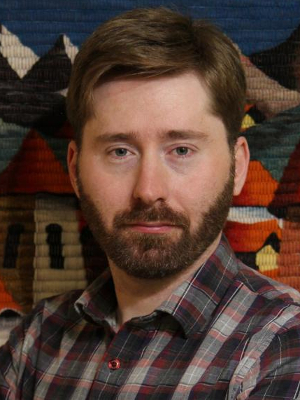DySoC/NIMBioS Seminar Series
DySoC and NIMBioS are hosting a series of seminars on topics related to social complexity. Monthly seminars will be held at NIMBioS in Room 206, Claxton Building, 1122 Volunteer Blvd. Light refreshments will be served in Room 205 beginning 30 minutes before each talk. Faculty and students from across the UT community are welcome to join us.
Speaker: Dr. Jeremy Van Cleve, Biology, Univ. of Kentucky
Time/Date: Tuesday, September 10, 2019, 3:30 p.m.*
Location: Room 206, Claxton Building, 1122 Volunteer Blvd.
Topic: Components of cooperation: Synergy in structured populations and the evolution of guilt
Abstract:
Theoretical work in evolutionary biology, economics, anthropology, and other fields has revealed that prosocial and cooperative behavior in humans and other animals is dependent on a few fundamental elements that allow the benefits of cooperation to accrue disproportionately to other cooperators. These elements include: genetic population structure, behavioral plasticity, and ecological synergy. In this talk, I will first review how these elements separately enhance the evolution of prosocial behavior and present a model of how these elements interact in social groups. With a few simple restrictions, the model surprisingly shows that results from two-player games or pairwise interactions are almost completely predictive of results in groups of arbitrary size. This suggests that while large groups may have complex social dynamics, intuition derived from pairwise interactions can be very useful. Second, I will present a model expanding on how behavioral plasticity can generate cooperation with a specific focus on the evolution of social norms. Norms are ubiquitous and are easily stabilized by punishing individuals who deviate from the norm. However, norm following in humans appears more complex in that internal psychological mechanisms are also important where individuals may ascribe inherent value to following a norm. I will present a model of the evolution of the internalization of norms via social preferences where an individual may receive positive psychological utility from following a norm or negative utility (e.g., "guilt") from deviating. The model reveals that the evolution of internalized prosocial norms is possible but it requires some amount of punishment by other individuals in order to be stable. This suggests that externally punished norms evolved first followed by internalized norms and accords with some notions of moral development and reasoning.
*Join us for refreshments at 3 p.m.
Seminar Flyer (pdf)
Watch seminar online.![]()
For more information about this and other NIMBioS Seminars, visit /announcements/seminars.
NIMBioS
1122 Volunteer Blvd., Suite 106
University of Tennessee
Knoxville,
TN 37996-3410
PH: (865) 974-9334
FAX: (865) 974-9461
Contact NIMBioS




